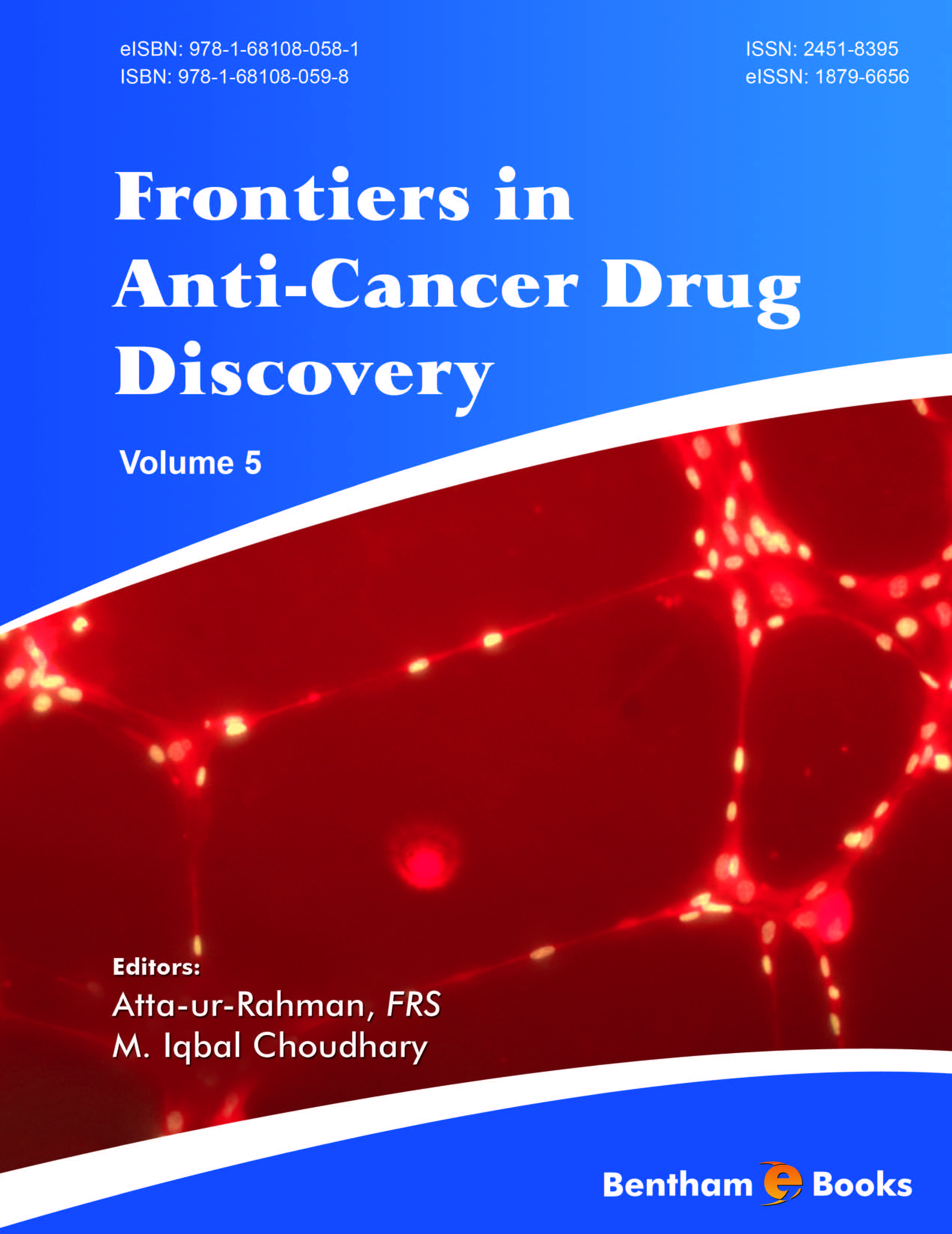Cancer remains a leading cause of death, despite decades of fundamental and applied research in
this field. However, early diagnosis, better understanding of disease processes, preventive
strategies, and development of new classes of anti-cancer drugs have contributed to improving the
survival rate and quality of lives of cancer patients.
Volume 5 of “Frontiers in Anti-Cancer Drug Discovery” contains well written comprehensive
reviews of various aspects of cancer biology, prevention and drug designing. These articles,
contributed by leading experts, reflect the diversity and complexity of the research field, and
where it stands today. This “must read” eBook is a comprehensive treatise of the state-of-the-art in
cancer research.
The first two reviews in this volume relate to diet and its relationship to the on-set of cancer. Diet
can be a part of the problem, or part of the solution. It can cause certain cancers, and also prevent
cancers, depending on what you eat. Cancer prevention by using dietary agents is now one of the
most active areas of research.
Gabriela Gutiérrez-Salmeán et al review the various dietary components which are associated with
increased risk of certain cancers. The authors have provided an interesting commentary on various
classes of dietary agents, such as antioxidants, omega-3 fatty acids, and polyphenols which are
perceived as cancer chemopreventive agents. The pitfalls of their use as adjuvants and the nonconclusive
clinical data, is also vigorously debated.
Atanasova and Gatseva have contributed a comprehensive review of the results of various
epidemiological studies on the reduced risk of cancers with the consumption of certain functional
foods, rich in bioactive substances. The role of various types of carotenoids in cancer prevention is
extensively reviewed in this article. Evidences are presented that antioxidant micronutrients of
natural origin are far superior in providing cancer prevention than their synthetic analogs.
Bassam Abdul Rasool Hassan has reviewed the pivotal role of pharmacogenomics in cancer
treatment. It is now well established that genetics plays a key role in the on-set and progression of
cancer, as well as the therapeutic outcome. Intra-individual genetic variations directly affect the
drug response. Therefore pharmacogenomics is increasingly used in cancer treatment. This
interesting review narrates the role of pharmacogenomics in drug selection, dosage, duration of
treatment, and safety and toxicity.
In silico methods continue to play an important role in drug discovery and optimization. Dutt and
Madan review the systematic utilization of in silico approaches in accelerating drug discovery and
designing drugs for cancer treatment. They have discussed the effectiveness of various in silico
models, and machine learning techniques, employed for the development of novel anti-cancer
agents.
Ali Zekri et al uncover a novel aspect of cancer biology by reviewing the most recent literature on
cancer stem cells (CSCs) as target for anti-cancer drugs. These cells are responsible for the
heterogeneity of tumor mass, and are often resistant to standard cancer chemotherapies. The
chapter highlights the importance of further studies in this exciting field.
The next three chapters focus on two key targets for anti-cancer drug discovery. Drug resistance in
cancer cells is a growing threat to the effectiveness of current therapeutic regimen. Efflux pump pglycoproteins
(P-gp) play an important role in hindering cancer chemotherapy. Extensive research
is being conducted targeting the p-glycoprotein efflux pump. The chapter by Mayur C. Yergeri describes the various classes of natural and synthetic compounds, which can selectively inhibit Pgp
and other transporters.
Monde Ntwasa has contributed a review on small molecular activators of p53 regulatory
machinery, which can serve as anti-cancer agents. p53 protein is down regulated or inactivated in
many cancers, and factors which contribute to the inactivation of p53 protein can be targeted to
upregulate its expression as a therapeutic strategy.
Ningaraj and Khaitan describe the role of ion channels [(Ca-dependent K+ channels (BKca) and
ATJP-sensitive K+ (KATP) channels] in brain cancers which unfortunately have poor prognosis, and
are often difficult to treat. They have presented the out-comes of their own work on BKca and KATP
channels inhibitors which can enhance the delivery of antineoplastic drugs and imaging agents in
cancer cells.
Agorastou and Tsoulfas have discussed the therapeutic potential of sorafenib, a multi-kinase
inhibitor against Raf kinase, as a drug against hepatocellular carcinoma (HCC). Sorafenib can be
used in different stages of cancer progression and apparently works as an anti-angiogenetic agent.
The use of sorafenib, alone or in combination, and therapeutic outcomes against HCC are
extensively reviewed.
This volume of the eBook series represents the results of a considerable amount of work by many
eminent scholars. We wish to thank them all for their excellent contributions, and their
commitment to complete the writing assignments in an efficient manner. We would also like to
thank the excellent team of Bentham Science Publishers, especially Ms. Fariya Zulfiqar led by Mr.
Mahmood Alam, Director Bentham Science Publishers, who deserve all appreciation.
Prof. Atta-ur-Rahman, FRS
Honorary Life Fellow
Kings College
University of Cambridge
UK
Prof. M. Iqbal Choudhary
H.E.J. Research Institute of Chemistry
International Center for Chemical and Biological Sciences
University of Karachi
Pakistan

